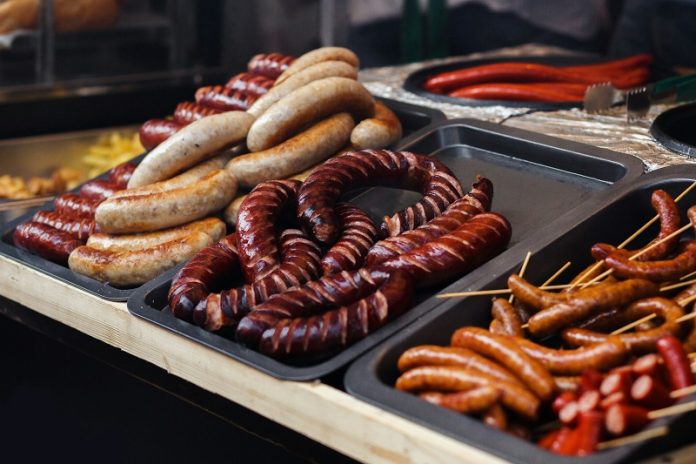
High blood pressure, or hypertension, is a common health issue for seniors and can lead to serious problems like heart disease, stroke, and kidney failure if left unmanaged.
While medications can help, diet plays a crucial role in controlling blood pressure.
Certain foods can make high blood pressure worse, so knowing what to avoid is an important part of staying healthy. This article will explain which foods to limit or avoid, using research-backed evidence and simple explanations.
One of the biggest culprits in raising blood pressure is salt. Salt contains sodium, which causes the body to retain water. This extra water increases the volume of blood in the bloodstream, putting more pressure on the blood vessels.
A study published in the journal Hypertension found that reducing sodium intake can significantly lower blood pressure in people of all ages, including seniors. The American Heart Association recommends consuming no more than 1,500 milligrams of sodium per day for people with high blood pressure.
Foods like canned soups, processed meats, snack chips, and even some breads are often packed with hidden salt. Checking food labels and choosing low-sodium options can help reduce salt intake.
Sugary foods and drinks are another category to watch out for. Consuming too much sugar can lead to weight gain and increase the risk of insulin resistance, both of which can contribute to high blood pressure.
A review in the journal Nutrients found that people who consumed high amounts of sugar-sweetened beverages had a higher risk of developing hypertension. Replacing sugary drinks like soda and sweetened teas with water, herbal tea, or unsweetened beverages is a simple way to make a positive change.
Foods high in saturated and trans fats are also bad for blood pressure. These unhealthy fats can cause weight gain and contribute to the buildup of plaque in arteries, which makes it harder for blood to flow and increases blood pressure.
Saturated fats are found in foods like butter, fatty cuts of meat, full-fat dairy, and baked goods made with shortening. Trans fats, which are even worse for heart health, are often found in margarine, fried foods, and packaged snacks.
The Journal of the American Heart Association reported that reducing the intake of these fats can improve blood pressure and overall cardiovascular health. Choosing lean proteins, healthy fats like olive oil, and plenty of fruits and vegetables is a much better alternative.
Caffeine is another thing to consider. While the effect of caffeine on blood pressure varies from person to person, some studies show that it can cause temporary spikes in blood pressure, especially for those who aren’t used to it.
If you’re sensitive to caffeine, it might be a good idea to limit coffee, energy drinks, and certain teas. A good rule of thumb is to monitor how your blood pressure responds after consuming caffeine and adjust accordingly.
Alcohol is another substance that should be consumed in moderation. Drinking too much alcohol can raise blood pressure and reduce the effectiveness of blood pressure medications.
The American Journal of Hypertension found that limiting alcohol to one drink per day for women and two drinks per day for men can help manage hypertension. For some seniors, cutting out alcohol altogether might be the best choice.
Processed foods, which often contain a combination of high salt, unhealthy fats, and added sugars, are some of the worst offenders for blood pressure. These include items like frozen dinners, fast food, and prepackaged snacks.
Cooking at home with fresh ingredients gives you more control over what goes into your meals and helps you avoid these hidden dangers.
In conclusion, managing high blood pressure through diet involves making smarter food choices and avoiding certain items. Limiting salt, sugar, unhealthy fats, caffeine, and alcohol can go a long way in controlling blood pressure.
While it may feel challenging at first, small changes can make a big difference over time. By focusing on fresh, whole foods and cutting back on processed options, seniors can take an important step toward better health and a longer, more active life.
If you care about high blood pressure, please read studies about potatoes and high blood pressure, and top 10 choices for a blood pressure-friendly diet
For more information about high blood pressure, please see recent studies about impact of vitamins on high blood pressure you need to know, and the powerful link between high blood pressure and a potassium-rich diet.





